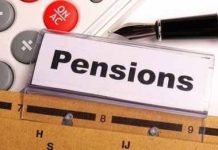According to Leo Akah, Director of Policy and Regulations at the Nigerian Insurance Commission, Nigerian airline operators are having a very difficult time paying the premium on their assets, including airplanes and other items.
He said that all insurance providers were dividing the premium into smaller amounts, with some choosing to do it on a monthly, others on a quarterly, and others in parts.
Speaking outside of a two-day symposium on aviation, freight, and export in Lagos, Akah made this revelation. According to the NAICOM head, insurance rates are frequently increased after a plane crashes.
He noted that though aviation risks were low, they were high in severity and required strict legal frameworks and regulatory principles in the insurance sector.
He said, “Our law says no premium no cover and if you don’t pay, you are on your own. You can’t fly if you don’t have insurance. This is an issue. Even accessing foreign exchange to pay your insurance overseas is among the challenges in the sector. The insurance company won’t collect naira from you.
“It is not optional for you not to have insurance as an airline operator. If you don’t insure your liabilities, for example, you cannot fly. We liaise with the Nigerian Civil Aviation Authority to ensure that whatever paper is submitted to them at NCAA is evidence that you have insurance so that they can allow you to fly.”
The huge insurance premium in the aviation sector is impacting the cost of operations of airlines, which are transferred to consumers.
However, despite Nigeria’s low air crashes, insurance firms, especially those based overseas, charge the country’s airline operators high insurance premiums, a situation which has been attributed to the bad rating of the continent’s airlines in terms of safety.













